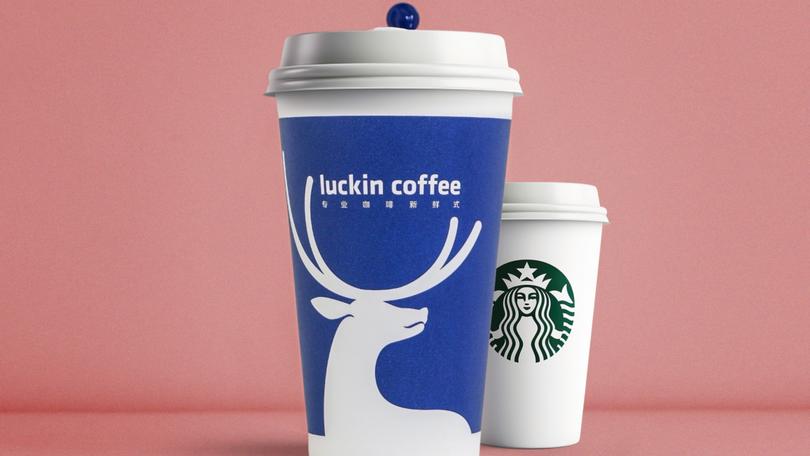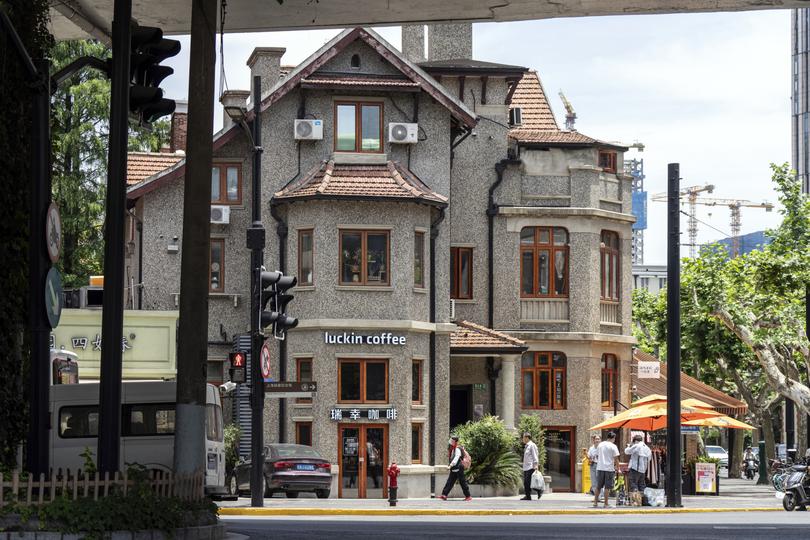The Economist: From Apple to Starbucks, Western firms’ China dreams are dying
Things have never looked rosier for foreign firms in China, at least according to the country’s Council for the Promotion of International Trade. But the reality is far less rosy.

Things have never looked rosier for foreign firms in China, at least according to the country’s Council for the Promotion of International Trade.
The body, which is controlled by the commerce ministry, claims 90 per cent of foreign companies rate their experience in China as satisfactory or better.
According to a recent survey by the council, foreign firms say the economy is strong, local markets are attractive and their outlook is bright. Following years of isolation during the pandemic, China’s government insists the country is open again for business, and that reforms have made life easier for foreign companies.
Sign up to The Nightly's newsletters.
Get the first look at the digital newspaper, curated daily stories and breaking headlines delivered to your inbox.
By continuing you agree to our Terms and Privacy Policy.Executives of those companies scoff at all this.
Many say they now struggle to justify investing in the country and talk instead of cutting staff.
In a recent survey by the American Chamber of Commerce in Shanghai, less than half of respondents said they were optimistic about the prospects for their business in China over the next five years—a record low. On December 4 Mary Barra, the boss of General Motors, said the American carmaker would write down the value of its joint ventures in the country by more than $US5b and close factories there.
Many American and European companies with once-thriving businesses in China are watching these unravel.
In recent decades Western bosses looked to China not just as a place to make things cheaply, but as a vast and growing market.
According to our analysis, the sales in China of listed American and European companies that disclose them peaked at $670b in 2021, accounting for 15 per cent of those firms’ total revenue. Things have gone south since.
Last year sales were down to $650b; their share of total revenue slipped to 14 per cent. This year has shown no sign of improvement. Of those firms in our dataset that report quarterly sales in China, almost half saw these decline, year on year, in the most recent reporting period.
Companies confronting shrinking sales in the country range from Apple, a tech giant, and Volkswagen, a carmaker, to Starbucks, a coffee chain, and LVMH, a luxury conglomerate.
“At this point we should have turned a corner,” complains the regional boss of a global firm.
Another foreign executive laments that the days of feverish growth in China for his firm seem to have passed. Although some Western companies such as Eli Lilly, a drugmaker, and Walmart, a retail behemoth, continue to grow in the country, their ranks are steadily thinning.

One reason for this is China’s economic stagnation. A housing crisis has sent property prices across the country plummeting and caused consumers to tighten their belts.
The central government signalled in September that it would do what it takes to reflate the economy. But after months of piecemeal announcements, things have not improved much. Property sales are still falling, compared with last year, and will probably continue doing so well into 2025.
Despite the government’s promises to stimulate consumption, gauges of demand are down.
Deflationary pressure is hurting all companies in China, not just foreign ones, notes Bo Zhengyuan of Plenum, a consultancy in Beijing. Fully 27 per cent of Chinese industrial firms were making losses at the end of October. Oversupply in various industries, from electric vehicles to building materials, has led to ferocious price wars.
Ms Barra has blamed a “race to the bottom” for GM’s difficulties making money in the country.
Yet Western companies are also being outcompeted by Chinese rivals. Starbucks has ceded market share to Luckin Coffee, a cheaper local competitor that in September had 21,000 stores in the country, roughly three times as many as the American chain and up from 13,000 a year before.
Brian Niccol, the newish boss of Starbucks, told investors in October that it faces “extreme” competition in China. It is reportedly weighing selling a stake in its business there to a local partner.
In many industries Western firms no longer enjoy the technological edge they once did over Chinese rivals. Chinese manufacturers of industrial robots now supply almost half the local market, up from less than a third in 2020.
Apple’s troubles in the country have been compounded by flashy new smartphones from Huawei, including the Mate 70 range it unveiled on November 26. The EVs produced by BYD, NIO and other Chinese carmakers are not only much cheaper than Western ones, but packed full of the clever tech that local consumers desire.
When the Chinese market was still expanding briskly, Western firms were able to increase their sales there even as they lost share. They no longer have that luxury.
If all that were not bad enough, Western companies are also becoming collateral damage in the rivalry between their governments and China’s.
On December 2 America introduced new restrictions on the sale of chipmaking tools to certain Chinese companies, as well as of high-bandwidth-memory chips.
That will hurt American manufacturers of semiconductor equipment such as Applied Materials, Lam Research and KLA, as well as ASML, a Dutch maker of advanced lithography tools. Other Western chip businesses may also suffer. After the announcement, four Chinese industry associations responded with a call to reduce purchases of American chips.
Companies in sensitive industries such as chipmaking are familiar with the risk attached to their sales in China. The list of industries exposed to geopolitical ructions, however, looks to be lengthening.
The shares of European brandy-makers including Rémy Cointreau and Pernod Ricard slumped in October after China said it would impose anti-dumping measures on the spirit, seemingly in retaliation for tariffs levied on Chinese EVs by the EU.
On December 2 the founder of Uniqlo, a Japanese clothing retailer, incurred the wrath of Chinese netizens when he said that the company did not use cotton from Xinjiang, a region of China mired in allegations of forced labour. China’s commerce ministry may soon slap restrictions on the local operations of PVH, the American owner of Tommy Hilfiger and Calvin Klein, for complying with an American law that bans the use of cotton from the region.
If Donald Trump follows through with his threat to raise tariffs on Chinese goods, Xi Jinping may respond by making life harder still for American companies. Foreign firms in China are trapped in the middle of a dangerous geopolitical struggle, writes Andrew Polk of Trivium China, a consulting firm.
Their troubles will not ease soon.
